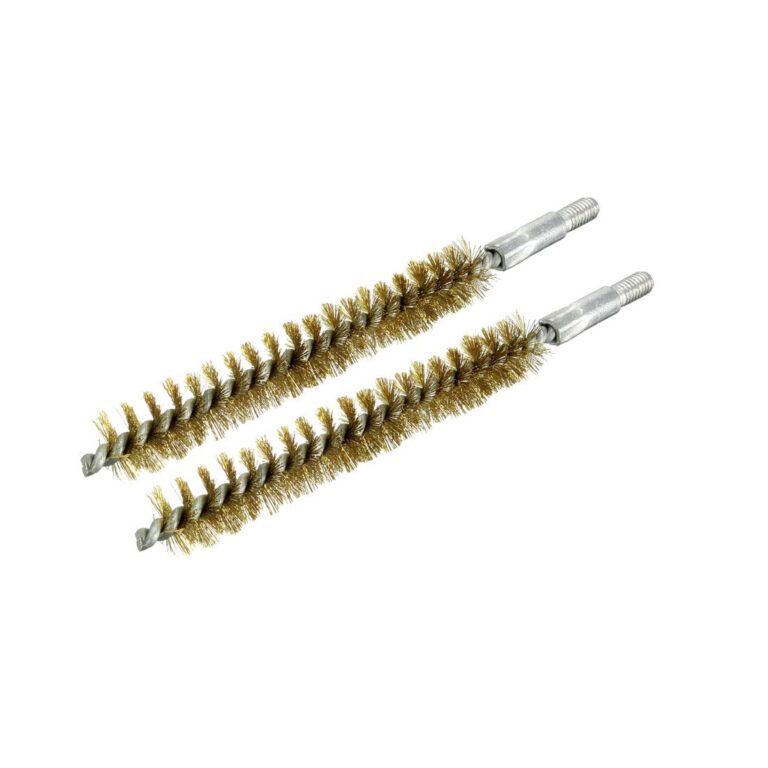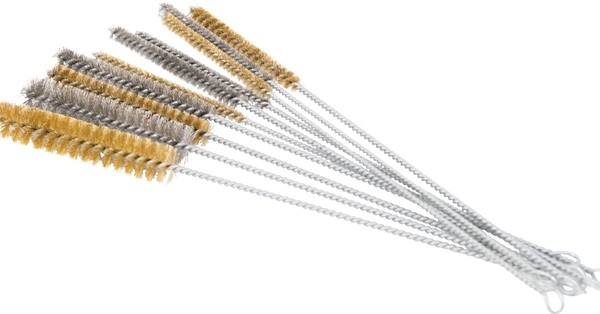The wire brush holds significant value as an essential item in the fields of crafts and maintenance. For many tasks, it is essential. Its importance is impossible to overstate, be it in metallurgy, woodworking, or vehicle maintenance. The wire brush effectively removes paint, dirt, and rust with its bristles, which are often composed of steel or brass. Its adaptability includes polishing and surface preparation for welding or painting. The wire brush is an essential tool in workshops all over the world due to its design, which guarantees its efficacy and longevity. Let us examine the vital function of the wire brush.
Do you need a wire brush?

Yes, the wire brush should be necessary. A wire brush comes in handy for thorough cleaning, whether you’re taking care of metal garden equipment or rust on outdoor furniture. The robust bristles ensure that your equipment remains in excellent condition by effectively removing dirt and rust. Regular maintenance enhances the lifespan of tools like shears and shovels. In your gardening practice, don’t undervalue the use of wire brushes. The longevity and usefulness of this little investment make it worthwhile.
Importance of selecting the right wire brush for specific tasks
For your crafts or do-it-yourself projects to turn out the best, choosing the correct wire brush is essential. For optimal results, each activity requires a certain type of brush. A coarse wire brush is an efficient tool for removing dirt and rust from metal surfaces, leaving a smooth surface. However, to avoid needless harm on fragile surfaces like wood, a gentler brush works best. The importance of this selection process lies in preserving the integrity of your materials.
Transitioning between tasks becomes seamless with the right brush, enhancing efficiency. For instance, wire brushes with angled bristles excel in reaching tight corners, making intricate work a breeze. This tailored approach ensures precision and saves time. Investing time in choosing the appropriate wire brush prevents frustration and guarantees a polished, professional result.
Different types of wire brushes and what are they used for different purposes?
Let’s see the different brushes and their unique roles, making your projects smoother and more efficient.
Flat Wire Brushes
Ideal for large surface areas, flat wire brushes are perfect for removing paint, rust, or corrosion. Their broad design covers more ground with each stroke. It makes them time-efficient and effective for tasks like prepping metal surfaces.
Cup Wire Brushes
When it comes to curved or rounded surfaces, cup wire brushes shine. Their cup-like structure allows them to conform to contours, ensuring thorough cleaning on irregular shapes. These brushes are excellent for automotive applications or any project requiring detailed work.
Wire Wheel Brushes
Need to tackle heavy-duty tasks? Wire wheel brushes are your go-to option. These brushes, mounted on a wheel, provide robust cleaning power, making them ideal for stripping away stubborn rust, scale, or weld spatter. They’re commonly used in metal fabrication and welding applications.
Crimped Wire Brushes
For a more flexible and forgiving brushing action, crimped wire brushes fit the bill. The crimping of the wires allows for better conformity to irregular surfaces, making them versatile for various materials. These brushes are suitable for light to medium-duty applications.
Twisted Wire Brushes
When precision is key, twisted wire brushes come into play. With tightly twisted wire bristles, these brushes offer a fine touch. It makes them suitable for intricate cleaning tasks, such as removing residue from threads or small components.
Knot Wire Brushes
Known for their durability, knot wire brushes are designed for heavy-duty applications. The twisted knots of wire provide extra strength and stiffness. It makes them effective for aggressive cleaning, deburring, and weld cleaning on tough materials like steel.
Brass Wire Brushes
Gentle yet effective, brass wire brushes are specifically crafted for softer materials like wood, copper, or brass itself. They provide a softer touch, preventing damage to delicate surfaces while still offering efficient cleaning.
Nylon Wire Brushes
In situations where you want to avoid scratching or damaging surfaces, nylon wire brushes come to the rescue. These brushes are perfect for cleaning without leaving marks. It makes them suitable for softer materials, plastics, or even automotive detailing.
Stainless Steel Wire Brushes
Resistant to corrosion, stainless steel wire brushes are excellent for heavy-duty cleaning tasks on stainless steel surfaces. They are durable, long-lasting, and effective in removing rust, paint, or weld splatter without compromising the integrity of the material.
Where to buy a wire brush?

When seeking a reliable source for wire brushes, you can meet the Anhui Juhongxin Technology Co., Ltd. Their brushes boast quality and durability, ensuring your DIY projects thrive. You can conveniently purchase their products online through their official website or trusted e-commerce platforms. Additionally, local hardware stores and speciality tool shops often stock Anhui Juhongxin wire brushes. By choosing this reputable brand, you’re not just acquiring a tool; you’re investing in the success of your projects. Make your purchase with confidence and experience the efficiency and effectiveness of Anhui Juhongxin wire brushes. Your crafting and cleaning tasks are about to get a boost with a tool that’s designed to meet your needs seamlessly.
What to consider when buying wire brushes?
Consider these key factors before making a decision:
Material Compatibility
Make learning about the wire brush’s material compatibility your priority. Metal, wood, and plastic surfaces are all catered to by different brushes. To avoid damage or inefficiency, make sure the brush you have chosen is compatible with the substance you will be working with. A stainless steel wire brush could work best on metal surfaces, while a softer material, like wood, might work better with something softer, like brass or nylon.
Bristle Type and Density
Examine the density and kind of bristles carefully. For heavy-duty jobs like removing rust, coarse bristles are ideal; finer bristles are better for sensitive surfaces. The bristle density affects the aggressiveness of the brush; denser bristles provide a more vigorous cleaning action. Think about the nature of your project to choose the right balance for optimal results.
Handle Design and Grip
Always remember how important a comfortable handle is. The handle’s shape and grip greatly influence how simple it is to operate and manipulate. To reduce hand fatigue after prolonged usage, look for ergonomic handles. Safety and accuracy are guaranteed by a firm grip. Regardless of the size of the DIY project you’re working on or how big it is. Your entire experience is improved with a well-designed handle.
Concluding remarks
In the toolbox of a craftsman, the wire brush is more than just an implement. It is a reliable ally. Its significance in metallurgy, car repair, and carpentry becomes apparent by its capacity to remove impurities and reveal flawless surfaces. The uses for a wire brush are many, ranging from polishing welds to cleaning priceless antiques.
